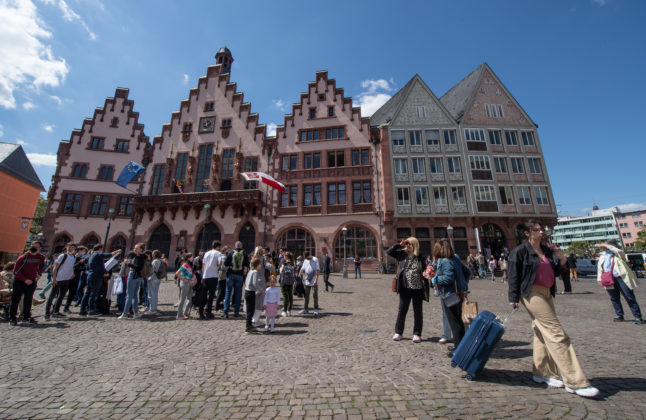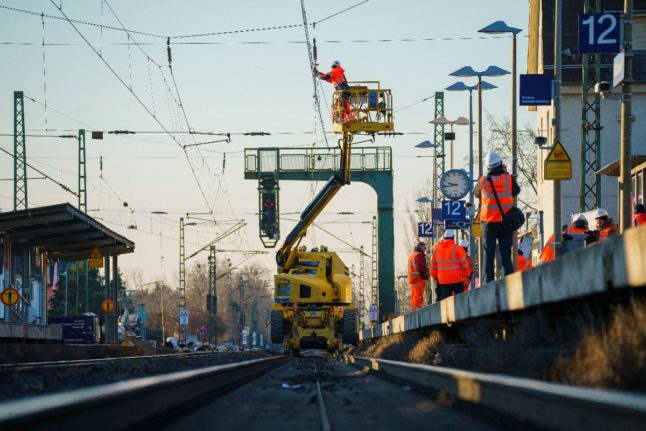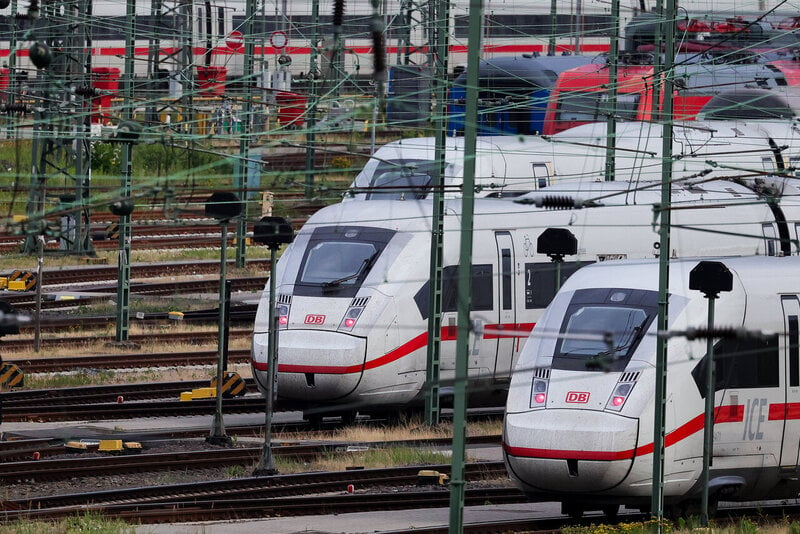What’s all this about cheaper transport?
You may have read on The Local (yes, we’ve been writing about it a lot!), that Germany is bringing in a reduced price travel ticket. For the months of June, July and August, people will be able to purchase a €9 monthly ticket which they can use on public transport all over the country.
The ticket is valid on buses, trains, U-Bahn services, trams and regional trains. People will be able to use it in all local networks – whether it’s Hamburg, Bavaria, Berlin, North Rhine-Westphalia or anywhere else.
It’s not valid on long-distance transport – that includes ICE and IC trains, as well as Flixbus and Flixtrain services. So you need a separate ticket for these services.
READ ALSO:
- €9 for 90: Everything. you need to know about Germany’s cheap travel deal
- How to explore Germany by train with the €9 ticket
Is it available to tourists?
Definitely. Anyone in Germany can buy it. That includes tourists or anyone else visiting the country, as well as residents who live in Germany.
How can I get it?
You can get your hands on it now from local ticket offices, ticket machines and online, ahead of the launch on June 1st. You can also get it from Deutche Bahn.
How does it work?
The ticket is being implemented by local transport organisations across the country so there are slight differences depending on where you get it. But the general idea is that people will be able to buy it at ticket machines, customer service centres and even via the transport provider’s app.
The ticket will cost €9 per calendar month, or €27 in total if you buy three separate tickets. It will always be valid from the 1st of the month. So even if you buy the ticket on June 14th it will still cost €9 and it will only last until the end of that month (not into the next month).
You can’t buy a three month version of the ticket – you’ll have to buy a separate ticket each month.
The ticket should have your first and last name on it, so you can’t give the ticket to someone else.

Can I bring children with me?
Usually, local transport providers allow children under the age of six to travel for free with an adult who has a ticket. But check the terms and conditions of the area you are in.
Can I bring a bike with me?
No. You’ll need to buy a special ticket to bring your bike on board. You can bring luggage on board without an extra ticket.
Is it worth tourists buying the €9 ticket?
If you plan to take public transport in Germany, it’s definitely worth getting it. A single day ticket in Munich for example costs €8.20 normally (and even more depending on the zone). In Berlin, a single day ticket costs €8.80.
Are there any downsides?
Expect services to be busy during these three months as more people turn to local transport. Rail operators have also urged people to watch out for building work on the lines. Since most people normally travel in summer, the warmer months are used to upgrade service and lines.
READ ALSO: What is Sylt and why is it terrified of the €9 holidaymakers?
Why is the ticket being brought in?
It’s part of the German government’s energy relief measures, which include a €300 payout to German taxpayers and a fuel tax cut. The aim of the transport ticket is also to encourage people to leave their cars at home which protects the climate. If successful, it may lead to price reductions of local transport in future.
Are there still Covid measures in Germany?
Yes – on public and long-distance transport, people in Germany still have to wear a face mask. You also have to isolate for at least five days (or a maximum of 10 days) if you get a positive Covid test, and there are still restrictions on entering the country.
READ ALSO: Five things to know about the Covid pandemic in Germany right now




 Please whitelist us to continue reading.
Please whitelist us to continue reading.
Member comments